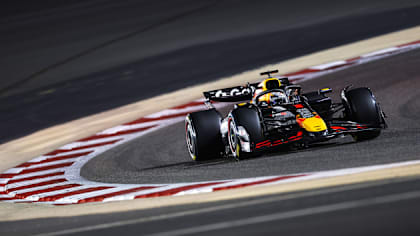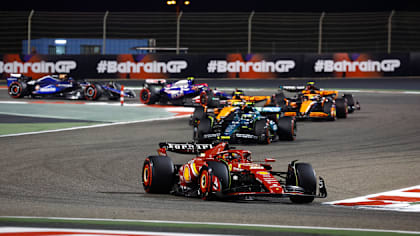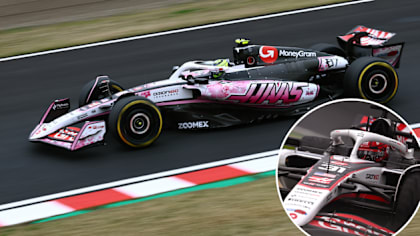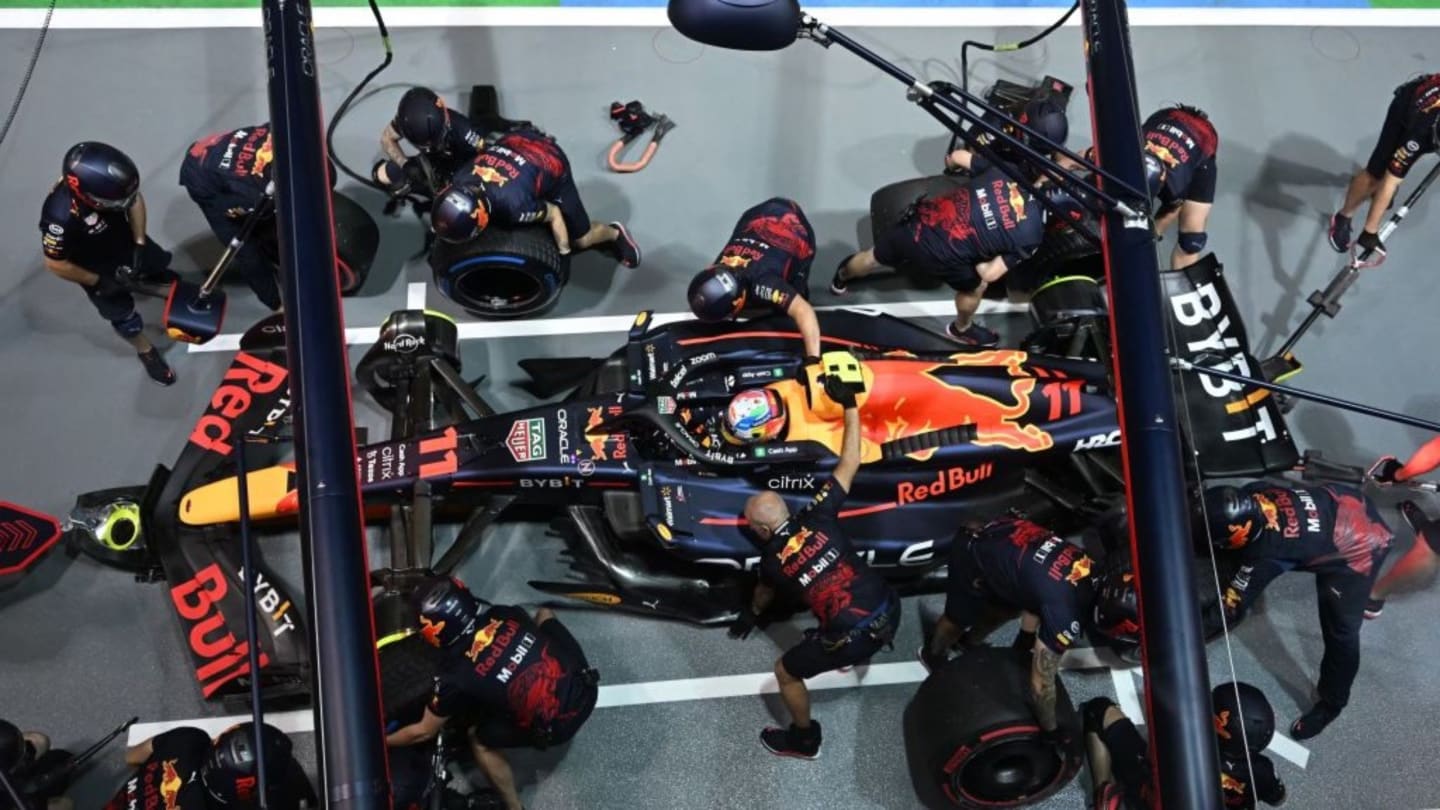
Feature
STRATEGY GUIDE: What are the possible race strategies for the 2022 Singapore Grand Prix?

Share

Formula 1's first visit to the Marina Bay Street Circuit since 2019 has a grid set up for an exciting race, with a number of quick cars out of position who might need to rely on strategy to make progress. So let’s take a look at the different options that are available to the drivers in Singapore…
What’s the quickest strategy?
There hasn’t been a huge amount of dry weather running since Friday but the data is all pointing towards a one-stop strategy being the quickest route for a number of reasons. One is the performance of the hard compound on a long run that makes it a good race tyre, and another is the length of the pit lane.
Due to the low speed limit and long pit lane, drivers lose an estimated 28 seconds whenever making a pit stop, making it particularly costly to try and make a second stop.
The frontrunners get to set the pace and that means it’s likely to prove optimal for them to start on the soft compound for the opening stint (strategy 3 in the chart below) – ensuring the best performance off the line and on the opening lap in order to protect their positions on track.
Although the pace does need to be managed to get to the pit window, it’s quite a wide window that a stop can be made in, pitting any time from Lap 18 before switching to hard tyres for the remainder of the race.
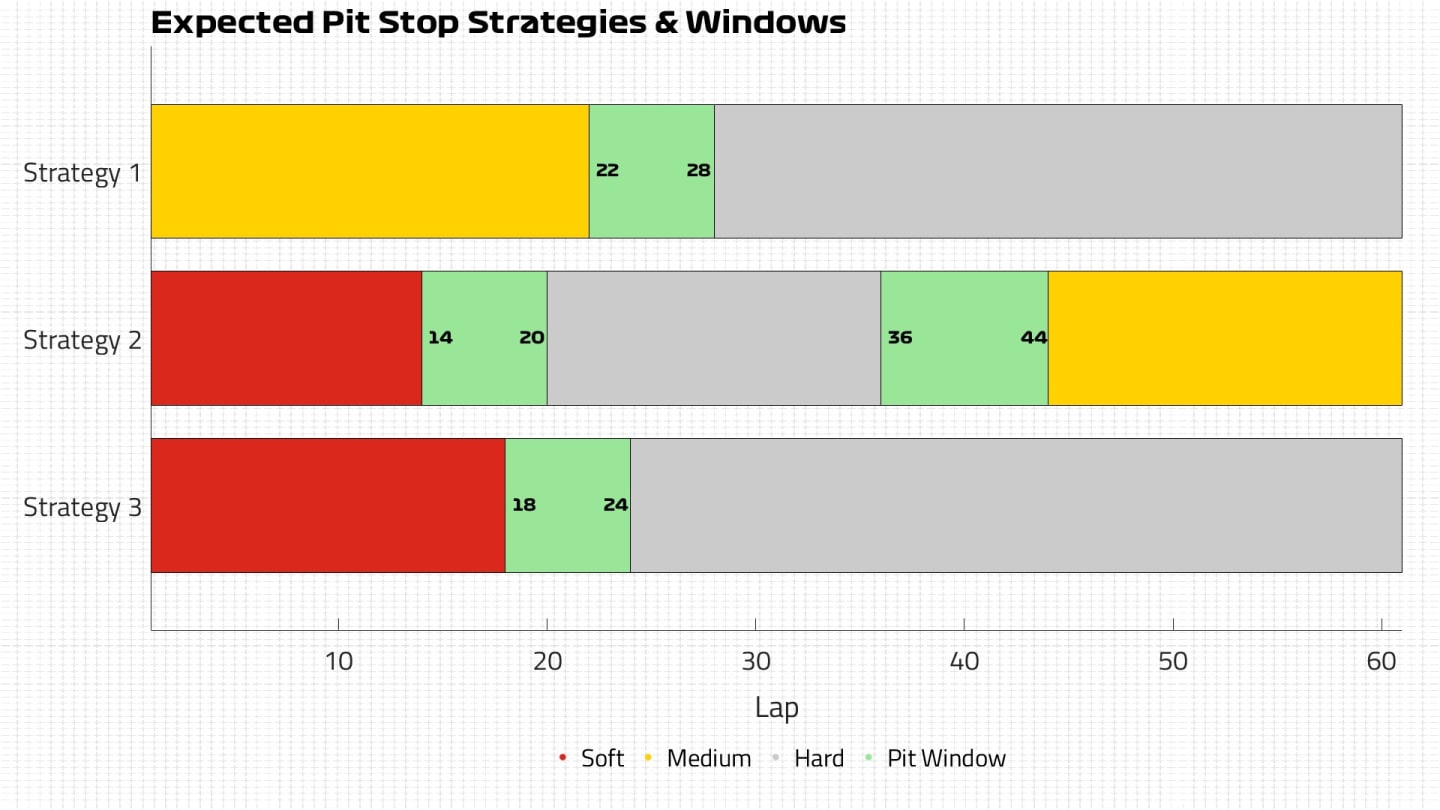
How about a different option for the top 10?
The main alternate option for a driver near the front of the grid is still a one-stopper, but instead using the medium for the opening stint (strategy 1, above).
That would come with a little less grip at the start but could offer a return later in the stint, as Pirelli has seen higher than expected levels of degradation from the soft and medium so far this weekend.
Heavy rain on Saturday means the amount of rubber left on the track is likely to be lower than usual at this stage of the weekend, meaning similar levels of degradation can be expected, which makes the medium an attractive option.
It also comes with the benefit of an even wider pit window, as you could stop as early as the soft-tyre runners if you want to try and undercut the car ahead, or run much longer – up to Lap 28 – in an attempt to gain track position.
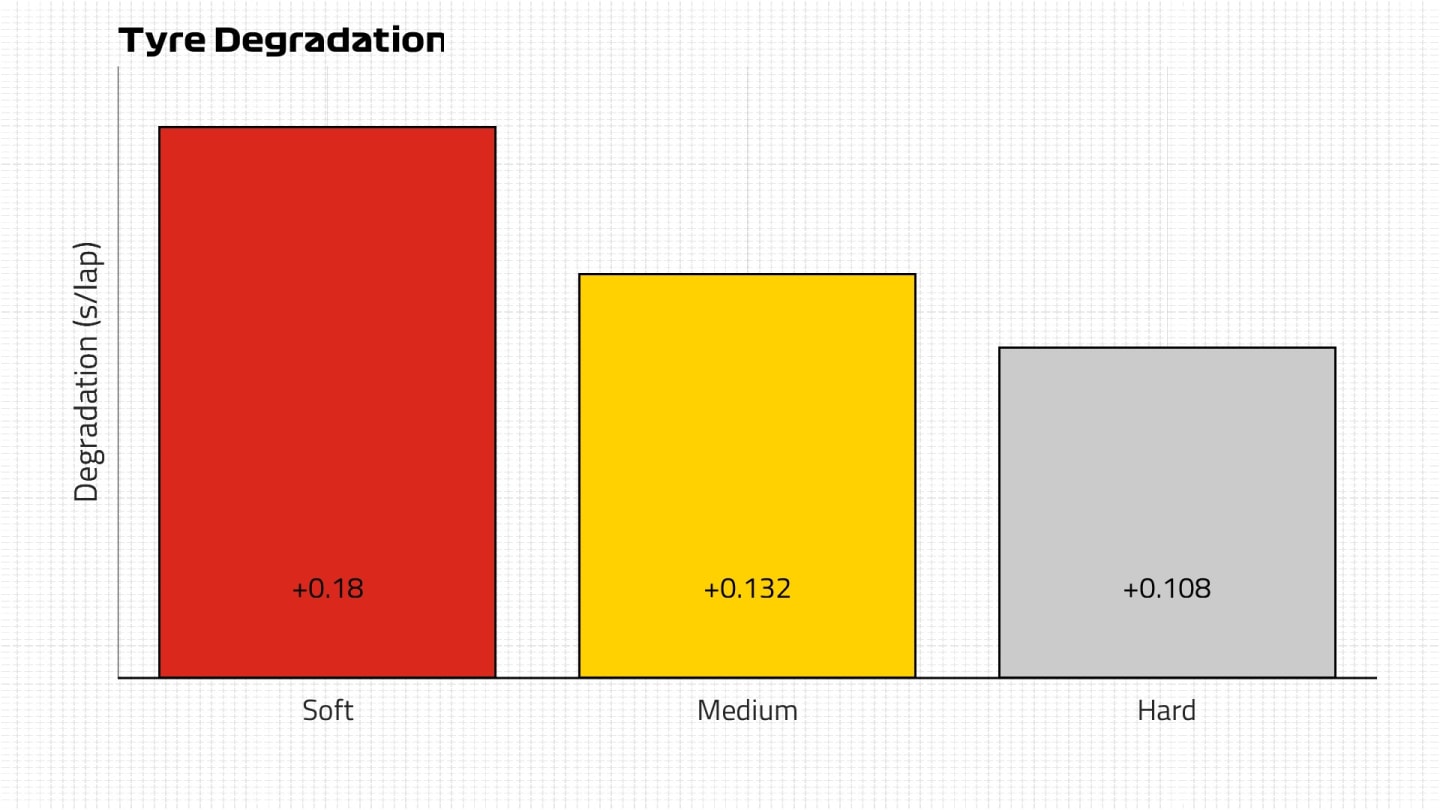
The latter approach also opens up the potential to take advantage of an incident and save time in the pits, as a stop under Safety Car conditions takes 15 seconds, and under Virtual Safety Car is closer to 20 seconds.
Should overtaking prove easier than expected, then anyone starting on the soft for the first stint could consider a two-stopper that includes a more aggressive first part of the race, switching to hards and then making a final stop for mediums with around 25 laps to go. But this will only work if a driver can overtake in order to use their pace advantage.
What are the options for the bottom half of the field?
There aren’t too many alternatives that can be considered without gambling on other incidents, but starting on the hard tyre could be looked at by those at the back of the grid if they are hoping to take advantage of issues ahead.
The need for those starting on the softs to manage the pace in the first part of the race is expected to mean that starting on the hard won’t cost a huge amount in terms of lap time, ensuring anyone who does so is able to stay in touch with the pack.
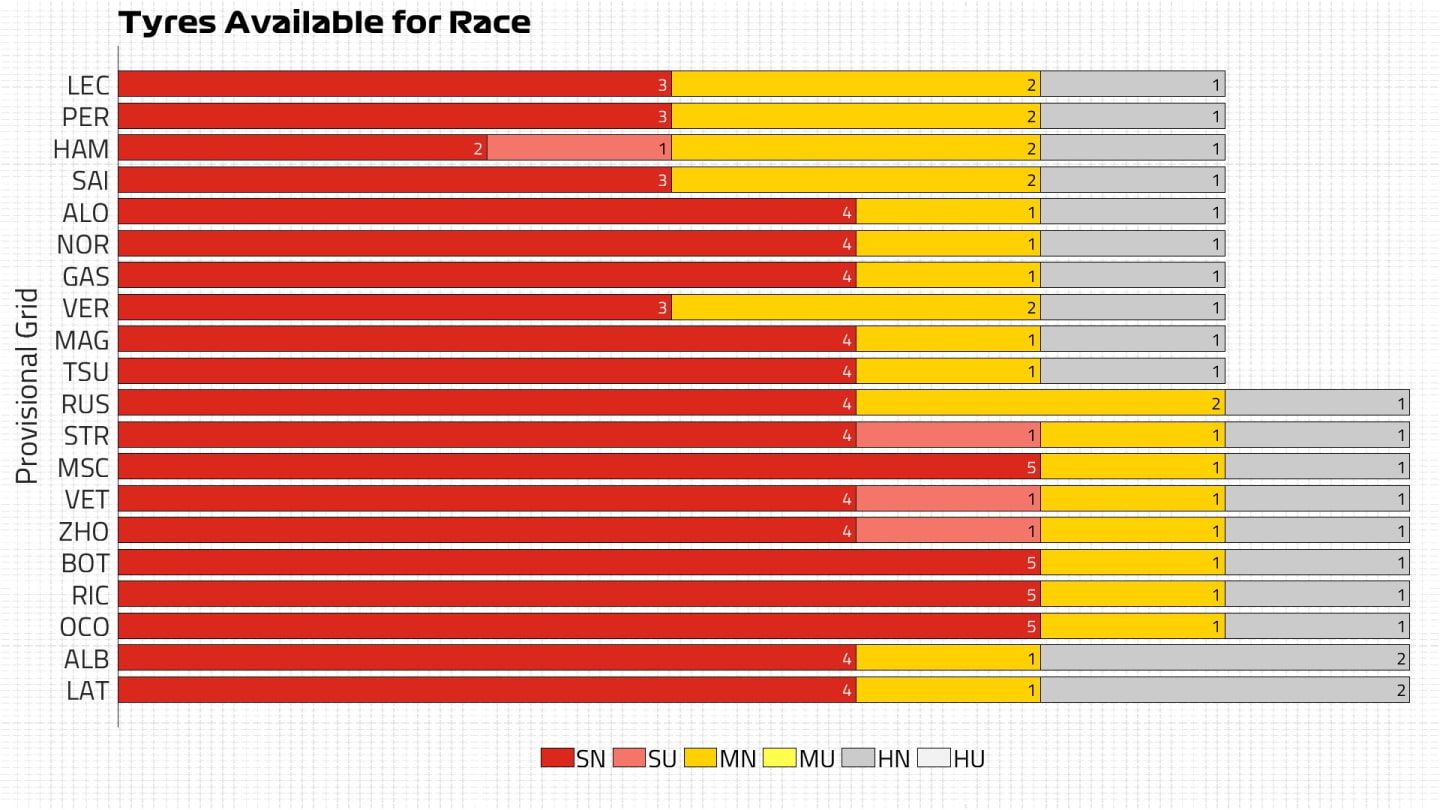
From there the plan would be to move up the order as those ahead make their pit stops, and then hope to take advantage of clear air and potentially a well-timed Safety Car to make their own stop.
The downside is an early Safety Car period can’t be reacted to if you’ve started on the hard as it won’t be possible to make it to the end of the race on softs or mediums, so drivers would be staying out on track in the hope of a second interruption to try and make that strategy work. Plus, if it rains, the hard is not the ideal tyre to be on…
FACTS AND STATS: Leclerc clocks most poles for a Ferrari driver in a season since 2001
Wait, but what’s the weather doing?
The forecast is always a difficult one to trust in Singapore, given the ability for thunderstorms to bubble up at short notice and rain form near the track.
Saturday was an interesting example for all of the teams, though, as a massive thunderstorm early in the day cleared, only for heavy rain to return before FP3.
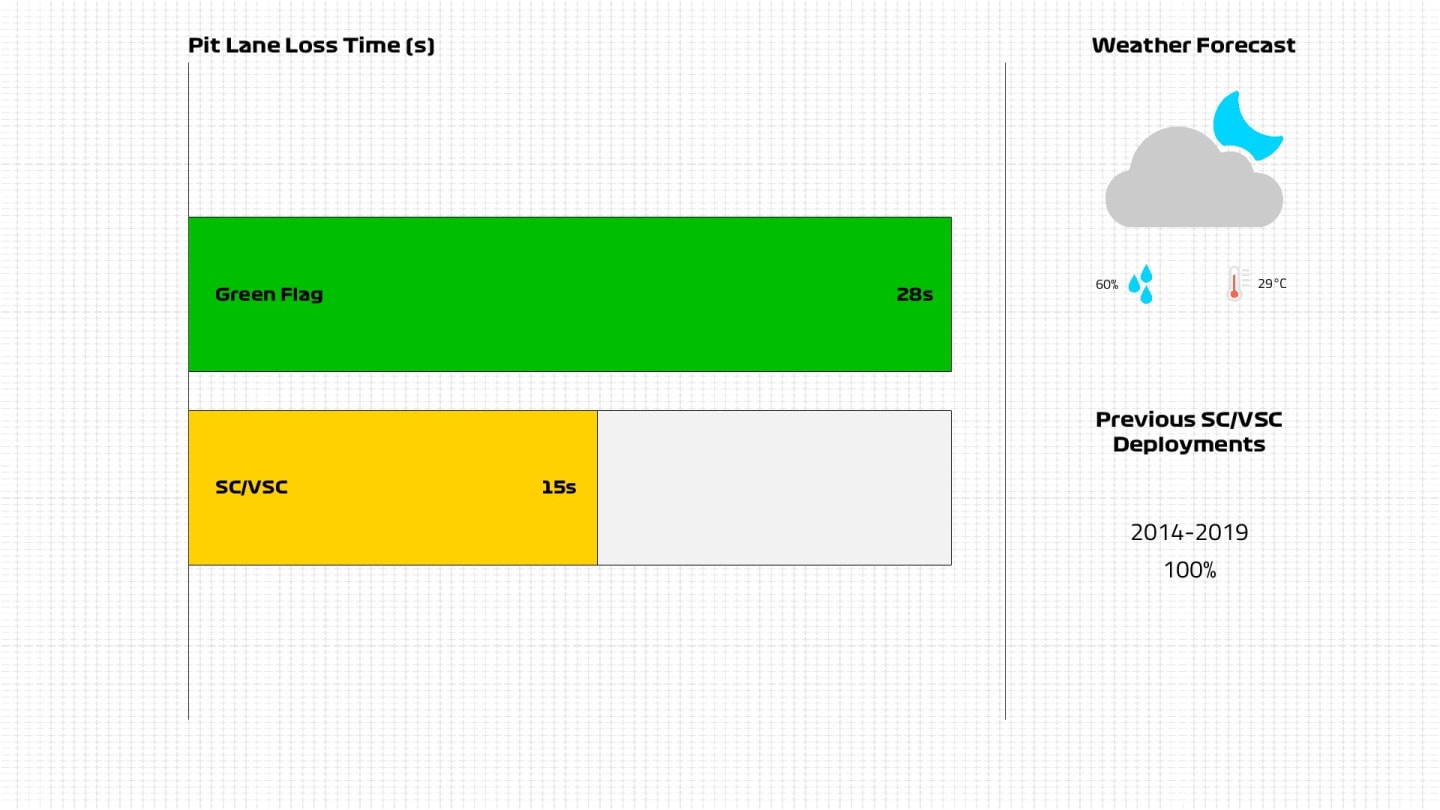
While running in that session was delayed by a 30-minute pit lane closure before the FIA deemed the surface water to have been cleared enough to allow cars onto the track, it was another two and a half hours until qualifying and yet the track still wasn’t dry by then.
Additives to the aggregate used in the track surface help retain moisture in humid conditions, and with running taking place after dark there is no sun to help dry it out more quickly. So qualifying saw a slow improvement before enough of the track was finally ready for slick tyres, with the crossover point coming with lap times in the 1m 52s.
HIGHLIGHTS: Watch as Leclerc takes pole in a thrilling Singapore qualifying session
Heavy rain is forecast earlier in the afternoon on Sunday but expected to have stopped a few hours before the race, meaning a similar scenario could unfold where drivers are starting the race on a track that requires intermediates and is drying slowly.
In this case, the inters are good for up to 30 laps and are holding up well on such a surface, and then the preferred choice will be to use soft tyres as they have the lowest working range and perform best of the slick compounds when there are still damp patches.
YOU MIGHT ALSO LIKE
Feature F1 FANTASY: Strategist Selection – What’s the best line-up for the Bahrain Grand Prix?
News What time is the Formula 1 2025 Bahrain Grand Prix and how can I watch it?
new
Live Blog LIVE COVERAGE: Follow all the build-up ahead of the Bahrain Grand Prix weekend
TechnicalF1 Unlocked TECH WEEKLY: Why a crucial Haas issue forced them to hastily modify their floor for Japan

